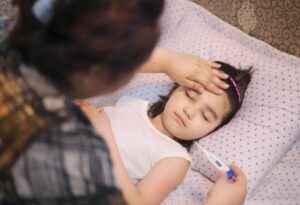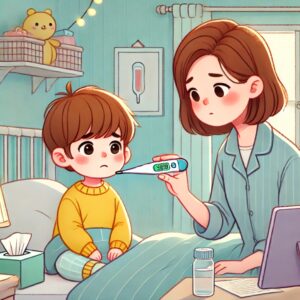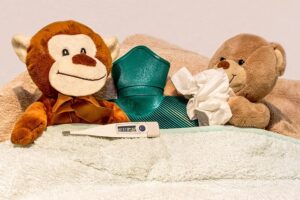It’s every parent’s nightmare—your baby rolls off the bed, bumps into the table, or takes a tumble while learning to walk. The sound of a little head hitting the floor is terrifying. But here’s some relief: in most cases, head bumps in babies are minor and nothing to panic about. Knowing how to respond and what signs to watch for can make all the difference.
Why Do Babies Bump Their Heads So Often?
Babies are top-heavy, and their motor skills are still developing. As they learn to crawl, pull up, and walk, they’re naturally clumsy and curious. This makes head bumps pretty common—especially during those first months of mobility.
What Should You Do Immediately After a Head Bump?
1. Stay calm and comfort your baby
Crying after a bump is a good sign—it shows your baby is awake and reacting to the situation. Gently hold and soothe them.
2. Check for injuries
- If there's swelling or a bump: Apply a cold compress or wrapped ice pack to the area for 10–15 minutes to reduce swelling.
- If there's a cut or scrape: Clean the wound with water, apply gentle pressure to stop any bleeding, and cover it with a clean bandage.
- If the bump looks soft, sunken, or oddly shaped, seek medical attention right away.
Signs That a Baby Head Injury Might Be Serious
While most head bumps are harmless, some warning signs could suggest a more serious issue. Call your doctor or go to the ER if your baby shows any of the following:
- Loss of consciousness, even briefly
- Vomiting more than once
- Unusual drowsiness, hard to wake, or seems "off"
- Weak or high-pitched cry
- Seizures or twitching
- Bulging or soft spot on the head that looks swollen
- Clear fluid or blood coming from ears or nose
- Eyes that look “off” (rolling, unequal pupils, or no response to light)
- Refusing to eat, irritable, or not acting normally
Can Babies Sleep After Hitting Their Head?
Yes—if your baby is alert and acting normally, it’s generally safe to let them sleep. However, keep an eye on them for the first 24 hours. You might want to gently wake them every few hours during the night to make sure they respond as usual (such as opening eyes, feeding, or crying normally).
How to Care for a Baby After a Head Bump
- Monitor for changes for the next 24–48 hours
- Keep things calm and quiet—limit stimulation and avoid rough play
- Feed your baby as usual and look out for feeding difficulties or vomiting
- Don’t give any medications unless instructed by a doctor
- Avoid home remedies or ointments on head injuries
Will a Head Bump Affect Brain Development?
In most mild cases, no. A small fall or bump doesn’t typically cause long-term damage. Babies are surprisingly resilient. However, if a serious head injury is left untreated, it may pose risks to brain development, which is why it's so important to monitor closely and seek help when in doubt.
How to Prevent Head Injuries in Babies
While you can’t prevent every fall, there are ways to reduce the risks:
- Place soft mats or rugs on hard floors
- Use corner guards on tables and furniture
- Avoid leaving babies unattended on beds or changing tables
- Install baby gates on stairs
- Anchor heavy furniture to walls
- Avoid baby walkers—they increase the risk of falling down stairs
- Supervise your child when they’re climbing or exploring
When to See a Doctor After a Baby Falls and Hits Their Head
Even if there are no immediate symptoms, trust your instincts. Call your pediatrician if:
- You’re unsure whether the fall was serious
- The bump is large and seems to be growing
- Your baby is under 6 months old and hit their head
- You just need reassurance or professional advice
Doctors can use a physical exam or, if needed, imaging (like a CT scan) to check for serious injuries, though most don’t require it.
Final Thoughts for Parents
Babies fall—it’s part of how they learn and grow. Most bumps on the head are minor and heal quickly with a little TLC. The key is knowing when to watch and when to act. Stay calm, observe your child closely, and never hesitate to reach out to your doctor if something doesn’t feel right.
Remember, you know your baby best.













